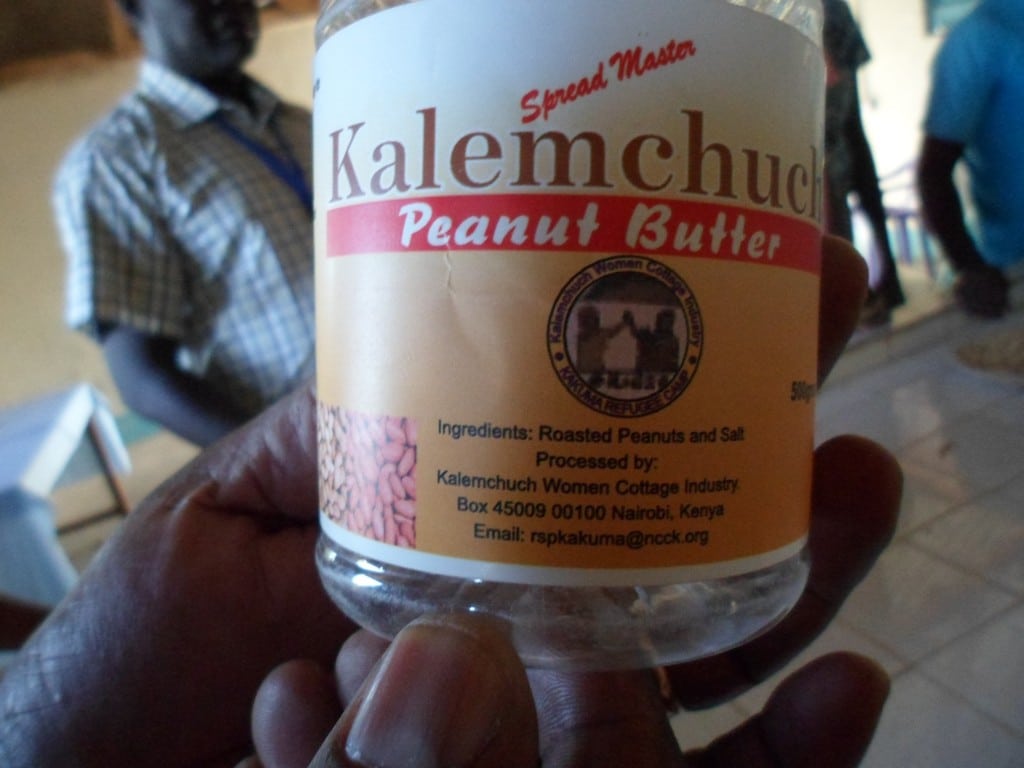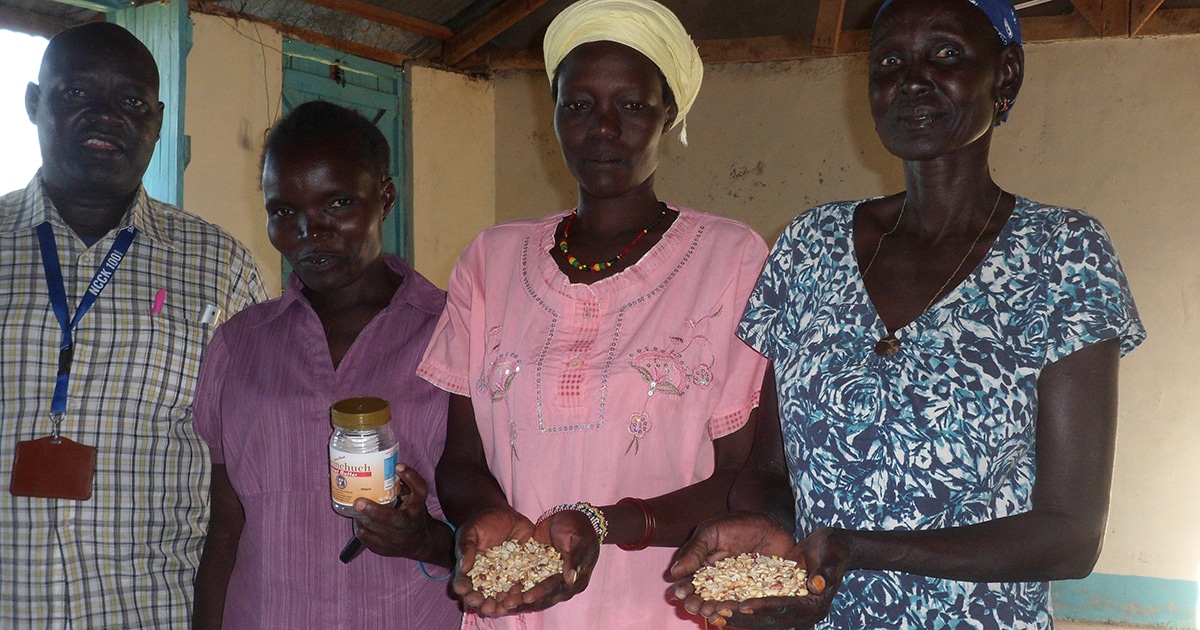Refugees at the Kakuma refugee camp in northwestern Kenya who have escaped armed conflict or persecution face a hardscrabble existence adapting to their new surroundings. But for one group of refugees primarily comprised of women and young girls, a welcome source of income and nourishment has come in the unlikely form of peanut butter.
An estimated 180,000 refugees from countries such as Sudan, South Sudan, Ethiopia, Burundi, Uganda, Rwanda and Somalia live in the camp, which is administered by the United Nations High Commissioner for Refugees and falls under the jurisdiction of the Kenyan government.
Confined to the camp by its governing authority and unable to seek education or employment outside of it, the refugees are almost entirely dependent on international humanitarian aid for food and other resources. The semi-arid desert environment can make growing crops difficult for those attempting to create a new life for themselves.
In an endeavour to improve the living conditions for families in the camp, a Lutheran World Foundation and Primate’s World Relief and Development Fund (PWRDF) partnership helps refugees produce peanut butter to both financially support and provide nourishment for their families.
By making a donation through the 2015 Gifts for Mission gift guide, you can make a $25 donation enabling the group to produce 500 jars of peanut butter that provide nutrition and income for refugees across Kenya.
Approximately 20 refugees participate in the program, which takes advantage of the dry climate—since peanut plants are one of the few crops that actually grow better in such conditions.
Participants first buy peanuts at the market before roasting them, removing the shells, grinding them and finally packaging, labelling and selling the peanut butter.
 The income from selling the peanut butter allows the refugees to buy more food and improve their nutrition by consuming more protein, which is relatively scarce in the local diet. They are also able to buy other resources such as school supplies for their children.
The income from selling the peanut butter allows the refugees to buy more food and improve their nutrition by consuming more protein, which is relatively scarce in the local diet. They are also able to buy other resources such as school supplies for their children.
“They can contribute to the children’s education because they can buy the [school] uniform or the book … or give the children some food when they go to the school,” PWRDF Africa development coordinator Jeannethe Lara said.
Participation in the program also offers some non-material benefits.
“Whenever you have the possibility to work, to produce something, it gives you self-esteem,” Lara said. “It really makes your life [feel] a little bit more important.”
“Many people, when they arrive in the refugee camps, the food is given, the house is there,” she added. “It’s like, what do you do? You cannot move, you cannot travel, you cannot go study because there are no universities. So if at least you know that you are producing something for yourself, it’s really going to help.”
Donations through Gifts for Mission support the Kakuma project in many ways. Money goes towards buying peanuts, maintaining machines and equipment, and paying the salaries of staff members who support and monitor the women taking part.
The increased sustenance and resources gained through the program lead to a dramatic improvement in the quality of life for participants’ families.
“We cannot really imagine how much that helps—and according to each family, it helps one way or another—but it is huge,” Lara said.
“Things that we take for granted here … are the most important things that could happen to people [in the camp]. So I do think it’s really worth it.”
Help provide nutrition and income for refugees through Gifts for Mission.
Interested in keeping up-to-date on news, opinion, events and resources from the Anglican Church of Canada? Sign up for our email alerts .

